
Welcome to our FAQ section, your go-to resource for finding quick solutions to common queries. If you can't find what you are after below, please send us a message or give us a call.
No. A trust account, such as Hnry, cannot be used. This is because the funds are held in trust by the bank and do not meet the requirements for EFTPOS settlement.
Card payments must be settled into the same business bank account from which your merchant fees are collected. With Hnry, this setup is not possible, so a standard business bank account is required.
If you choose to apply a surcharge to card payments, you must follow the rules set by the card schemes and your Merchant Bank.
What to do when applying a surcharge:
Following these rules helps keep your business compliant and ensures customers are treated fairly.
EFTPOS terminals are built with strict security features to protect sensitive financial information. A tamper event occurs when the terminal detects interference with its security systems. This may indicate an attempt to compromise the device, but in most cases it is triggered accidentally.
The most common reasons for a TAMPER or ALERT IRRUPTION message include:
Once a terminal goes into tamper mode, it cannot be used again and must be replaced to ensure security is not compromised.
Offline transaction processing (EOV) comes with its own risks, and merchants should be aware of them. If your terminal malfunctions or is damaged while it has stored offline transactions, those payments may be lost before they are uploaded to the network.
Your Merchant Bank is the best contact to explain the implications and guide you through what to do in these situations. EFTPOS Central is not liable for any loss of stored transactions if a terminal fails before reconnecting and sending them through to the payment network.
If your EFTPOS terminal loses connectivity to the EFTPOS network—for example during a power cut, telecom outage, or network switch issue—you can continue to process card payments using Electronic Offline Vouchers (EOV).
How EOV works:
Transaction limits:
Verifone Network
Worldline Network
Transactions not supported in EOV mode:
Keeping your terminal updated with the latest software and hardware requirements helps avoid data loss when using offline mode.
New Zealand has two major payment processing networks: Worldline (formerly Paymark) and Verifone (sometimes called EFTPOS New Zealand). These networks make sure every transaction is handled securely and settled correctly with the banks.
Both networks charge a fee for each Terminal ID. This is a fixed cost that covers unlimited transaction volume. In return, you also get access to their reporting tools, which let you view and analyse your transaction history.
With EFTPOS One, there are no separate network fees. Everything is included in one simple monthly price. Learn More
A Terminal ID, or TID, is a unique code that identifies the EFTPOS terminal used to process transactions. While your Merchant Number identifies your business, the Terminal ID distinguishes each individual terminal.
If your business has more than one EFTPOS terminal, each one will have its own TID. These are usually numbered in sequence, such as ending in 01, 02, 03, 04, and so on. This makes it easy to track which terminal a transaction came from.
A Merchant Number, also called a Merchant ID (MID), is a unique code given to your business when you set up a merchant facility. It acts as an identifier in the payments system so that every transaction is linked to your business correctly.
The MID is essential for two reasons:
Without a Merchant ID, your EFTPOS terminal cannot process or settle payments.
There is a lot that goes on in the background when it comes to processing EFTPOS and credit card transactions. EFTPOS terminals cannot be linked directly to your bank account. To process card payments, every merchant must have an approved merchant facility set up through a bank or payment provider like EFTPOS Central. The merchant facility connects your terminal to the payment networks, checks each transaction, and then sends the funds to your nominated business bank account.
Banks and payment providers must follow the rules of the Anti-Money Laundering Act (AML) as well as the requirements of global card schemes like Visa and Mastercard. These checks are what allow your business to be part of the global payments network. Without this process, a terminal cannot securely connect transactions to your bank account.
To learn more about a merchant facility click here
AML stands for Anti-Money Laundering, and KYC stands for Know Your Customer. As a regulated payments provider, EFTPOS Central is legally required to check and verify the details of every business and its key people before services can begin. This helps protect the financial system, merchants, and customers from fraud and illegal activity.
How the process works:
All information is reviewed in line with our Privacy Policy. If we need anything extra, we will guide you through the process. Our aim is to keep the process as simple as possible while meeting the requirements of the Anti-Money Laundering and Countering Financing of Terrorism Act 2009.
View our AML/KYC guide here
Yes. To comply with card network rules and regulatory obligations, EFTPOS Central is unable to provide services—including EFTPOS One, Tap on Mobile, or merchant facility access—to certain restricted business types. These include, but are not limited to:
If you're unsure whether your business qualifies, please contact us. We're happy to review your application and help determine the best way forward.











